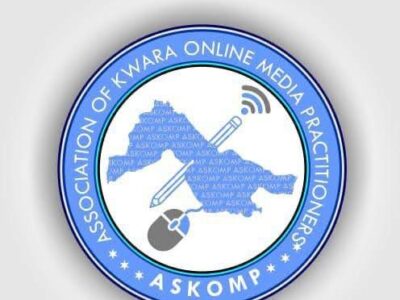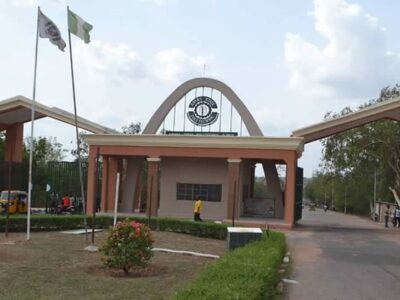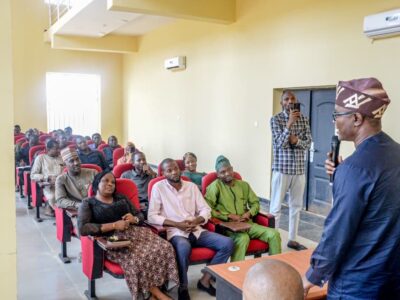BARELY 24 hours after President Muhammadu Buhari announced the appointment of Rear Admiral Yaminu Ehinomen Musa (retd) as the pioneer Coordinator of the National Counter Terrorism Centre, NCTC, a security policy think-tank, Nextier SPD, has advised the President not to allow counter terrorists officials to stay too long in their beats so as to avoid creating room for them forging criminal alliance.
The group also canvassed for better screening and training of counter-terrorists, effective intelligence-driven policing to prevent and respond to attacks and the prosecution of anyone indicted for aiding and abetting terrorism and banditry so as to deters others.
An Associate Consultant at Nextier SPD and Senior Lecturer, Department of Political Science, University of Benin, Edo State, Nigeria, Dr Iro Aghedo and Dr Ndu Nwokolo, the Managing Partner and Chief Executive at Nextier SPD and an Honorary Research Fellow, School of Government and Society, University of Birmingham, UK, noted that banditry in Zamfara State is riding on the waves of collusion.
According to the experts, “Several actors benefit from the conflict’s political economy and sabotage efforts to curb violence. These entrepreneurs of violence must be identified, prosecuted and appropriate punishment meted on them no matter their sociopolitical status if the deadly violence is to be tackled effectively.
“To ensure this, there is a need for better training and screening of counter-terrorists, more regular replacement at the front lines, effective intelligence-driven policing, and prosecution of those indicted for aiding and abetting bandits to serve as deterrence to others.”
They stated that Zamfara State has been on the edge of a precipice in the last couple of years because of escalated banditry and that the criminal violence has led to a surge in cattle rustling, raids on communities, ethnic conflicts and kidnapping for ransom.
According to them, “Out of the 4,419 persons abducted in Nigeria between January 2021 and June 2022 (See figure 1), Zamfara State recorded 911 cases, the second highest in the country after Kaduna State, which recorded 1,271. (See figure 2)
“In response, the government and traditional leadership have deployed a mixture of retaliatory and conciliatory strategies to no avail. For example, government troops deployment to quell bandits’ nefarious activities has yielded marginal results.
“Similarly, the use of amnesty to woo bandits has failed. These stabilisation efforts have been underpinned by a binary notion which divides the conflict actors into two separate ‘enemy’ groups. That is, those perpetrating violence (e.g. bandits) and those aiming for peace (e.g. members of state security forces).
“Based on the internal dynamics of banditry and other realities on the ground, this Nextier SPD policy weekly challenges the binary conception of criminal violence by shining some light on how the so-called ‘enemies’ connive to promote their economic agenda.”
On conflict actors and enemy construction, Nextier SPD stated that “the gradual but steady descent of Zamfara State and the broader North-West region into anarchy has mainly been blamed on the Fulani bandits who have resorted to terrorist tactics in their quest for land-based resources like pasture, water and grazing routes for their herds.
“The armed forces, political and traditional elite, and Hausa vigilante militias have only been blamed for using extreme violence to respond to Fulani terrorism. As argued by the Nextier report, this dominant narrative of the violence belies the historical peaceful co-existence of Fulani and Hausa in Zamfara State.
“In addition, both ethnic groups largely adhere to the Islamic faith. Thus, while the narrative of the Fulani Islamisation agenda is dominant in the South, especially under the Buhari administration, the discourse is less so in the North-West region, where Islam has been the main religion for both Fulani and Hausa for centuries.
“Therefore, in coming to grips with the actual drivers of banditry in Zamfara State, one should look beyond ethnic and religious enemy construction and grievance narratives and assess the self-related agendas of the conflict actors – whether bandits, vigilantes, local leaders or state security officials.”
The group also stated that “across Zamfara State, banditry has become a lucrative business chain with many stakeholders aiding and abetting. Even though traditional rulers are saddled with the responsibility of ensuring peace and good governance at the grassroots, several emirs and district heads have been dethroned by the Zamfara State government since 2019 for aiding and abetting terror gangs.
“The Emir of Maru was dethroned in August 2019 after a committee set up by the Zamfara State government and chaired by a former Inspector General of Police found him guilty of “working with terrorists and cattle rustlers in the Maru council area.”
“Similarly, the indictment of the Emir of Zurmi in the attacks on Kadawa village, where 61 persons were killed, made the state government suspend the Emir in June 2021. The Emir of Dansadau was also suspended in June 2021 for aiding the activities of terrorists in his domains. Several district heads were also removed for similar offences, including Kanoma in Maru emirate in 2021.
“But surprisingly, even though the traditional rulers were found culpable for killing, kidnapping, cattle rustling and community raids, they were not prosecuted for wrongdoing by the government, perhaps because of the usefulness of such local leaders in mobilising votes for the political elite during elections.”(Vanguard)










Comments